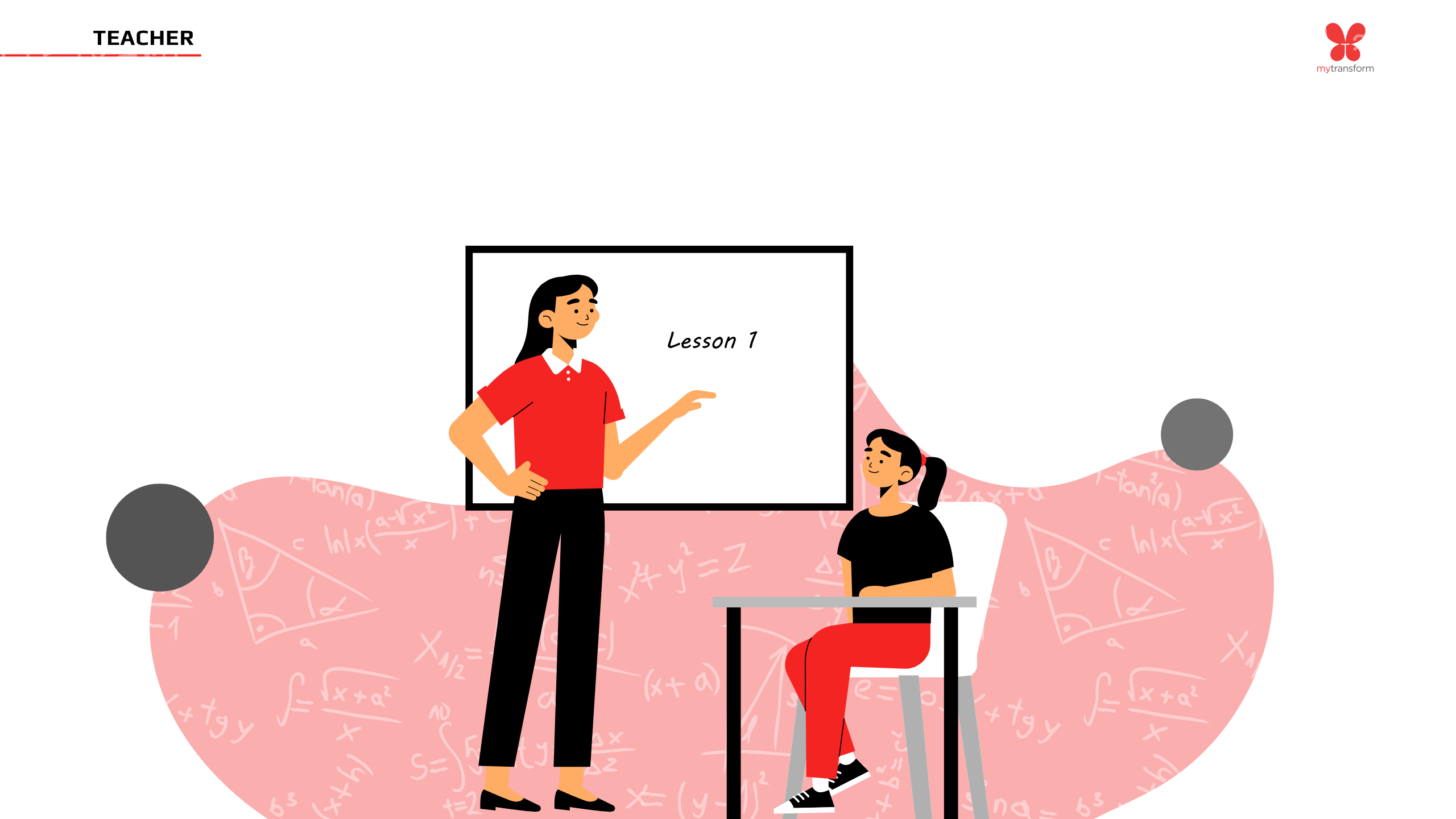
Teachers transform children into model citizens by imparting knowledge. They are an important part of a nation’s growth.
Teaching is a profession that makes a progressive difference in society. At least once in school life, we all have given thought to how to become a teacher in India.
We have some answers to all your questions about choosing teaching as a career. Teachers shape our country by building character, personality, and perspective in children.
To commemorate their contribution to society, September 5th is celebrated as Teacher’s Day in memory of Dr. Sarvapalli Radhakrishnan’s Birthday who was Independent India’s first Vice-President.
Teachers must exhibit patience, and an engaging personality, and teach their subjective knowledge.
Teachers must possess different subject knowledge and expertise to teach various standards of children from Nursery to Graduation. Here’s our guide to know more about becoming a teacher in India.
Who is a Teacher?
A teacher is an expert capable of imparting knowledge to help children to build, identify, and acquire skills to face the challenges in life and values to enhance development.
A teacher nurtures the young Indians to be the assets of our country. They provide education to children and students.
Teachers play a vital role in students’ lives within the bounds of a classroom. They care for and nurture children and students in their care.
They mentor and nurture students by building a warm and inspiring atmosphere in their classroom. They impart knowledge of their expertise and help students develop the ability to understand and learn new things to make their own decisions.
Why do you want to Become a Teacher?
By choosing teaching as a career, you can get job satisfaction and most importantly be around young creative children.
Teachers have the most influence on a child’s life apart from their parents. The results of your work are visible to you every day in the classroom giving you a sense of pride. Teaching is more than just a job.
Teachers get unmatched job satisfaction with the most rewarding work experience. They can instill passion in their job and get the opportunity to fill enthusiasm in their students.
There is high career growth in teaching that can extend from teacher to principal in a school and teaching in higher professional courses in Colleges as well.
There are numerous opportunities in various public and private institutions to help in nation-building.
Types of Teachers
In India, teachers need different qualifications to be part of children at different levels of education from nursery to graduation. Here is the general classification of types of teachers in India.
1. Nursery School Teacher
Nursery teachers educate children aged 2 to 5 years. They teach the very basics that’ll become the foundation for further education.
At a such young age, children need special care and nursery teachers must undergo additional education to be certified fit to take over very young minds.
They are Nursery Teacher Training (NTT) or Diploma in Early Childhood Education which are of 1 and 2 years duration.
2. Primary School Teacher
Primary school teachers are involved in teaching children from classes 1 to 5 generally in the age group of 6 to 12 years of age.
In this stage, the focus is primarily given to the basics of math, science, social studies, and languages with the goal to make children able to read, write, and speak. The primary teacher must have educational qualifications.
They are Bachelor of Elementary Education, Elementary Teacher Education, and Diploma in Elementary Education.
3. Secondary School Teacher
They focus on instilling in-depth knowledge of subjects and concepts. They focus on teaching students in classes 6 to 10.
The curriculum also includes teaching students about personality development, time management, responsibilities, and life skills.
The basic teacher education requirements are completing a Bachelor in Education (B.Ed) after getting graduation in a professional or non-professional course.
6. Higher Secondary School Teacher
Higher secondary teachers take classes for class 11 and 12 students. With a focus on specific streams like science, commerce, and arts, they teach specialized subjects in detail.
This stage will be the foundation of undergraduate programs and the desired field of specialization.
The basic education requirement will be post-graduation in a specialized field followed by a Bachelor of Education (B.Ed).
7. Special Educator
Special educators teach children who are physically, mentally, or emotionally challenged with learning disabilities.
To become a special educator, candidates must have graduated or post-graduation followed by a Bachelor of Education (B. Ed).
8. Lecturer/Professor
Lecturers and Professors teach in colleges offering undergraduate and postgraduate courses where they will be closely involved in academic and research activities in their specialization.
They must have post-graduation or enroll in a doctoral research program in parallel.
Skills Required to Become a Teacher
To become a teacher, one must possess a specific skill set to teach and manage students in the classroom and on the school campus as well. They are:
1. Communication Skills
Children openly tend to communicate with teachers and are needed to be responded well and clearly. They are also required to have good communication with colleagues and parents.
2. Supervisory Skills
Teachers need to supervise the activities of students, take care of them, and keep them safe from harmful situations. These acts need strong supervisory skills.
3. Motivational Skills
Teachers must create an inspiring atmosphere to get students to develop an interest in what they are good at. It requires continuous motivation and support from the teacher.
4. Patience
A teacher must have great patience to handle students and their behavior calmly and guide them to correct their wrongdoings and arrogant behavior.
5. Compassion
Compassion and kindness go a long way in students’ way of perceiving the way of life. Addressing their concerns in a compassionate way is a key skill of a teacher.
6. Physical Stamina
Few days demand long and tiring work hours and addressing the children’s needs might become tiring. Teachers must have the stamina to handle physical and emotional stress.
Eligibility to Become a Teacher
Candidates aspiring to become teachers must have Nursery Teacher Training (NTT) or Bachelor of Education (B.Ed) to be employed in Nursery Schools or higher grades.
Here are the basic eligibility criteria for being employed as a teacher in public and private educational institutions.
-
- The aspirant must have a Bachelor of Education (B.Ed) teaching degree from a recognized institution or university.
- Specialized subjects might demand postgraduation in the respective field to take higher classes.
- In the case of public and government institutions, candidates need to take up competitive exams to secure a job as a teacher.
- The majority of private schools take an interview to evaluate subject knowledge and skills before extending an opportunity to serve as a teacher.
Teaching Courses in India
There are many teacher training courses available in India. These courses formally train aspirants to become a teacher.
Here are the popular teaching courses to become a teacher in India preferred by public and private institutions.
-
- Integrated B.Sc and B.Ed Course
-
- Integrated B.A and B.Ed Course
-
- Bachelor of Education (B.Ed)
-
- Diploma in Elementary Education
-
- Nursery Teacher Training (NTT)
-
- Bachelor of Physical Education (B.P.Ed)
How to Become a Teacher: Step-by-Step Guide
Becoming a teacher in India is more of a passionate act than a job. However, there are certain qualifications to become a teacher that needs to be met before taking over a classroom. Here is a step-by-step guide to becoming a teacher.
1. A candidate must complete 12th standard in different streams such as Science, Commerce, and Arts.
2. Further, they must enroll in an undergraduate program in professional or non-professional courses depending upon their option in +2. The common UG programs are:
Undergraduate programs for the Science stream
- Bachelors of Science (B.Sc) in different specializations.
- Bachelor of Computer Applications (BCA)
- Bachelor of Engineering/Technology (BE/B.Tech)
- B.Sc – Information Technology
Undergraduate Program for Commerce stream
- Bachelor of Commerce (B.Com)
- Bachelor of Business Administration (BBA)
- Bachelor of Management Studies (BMS)
Undergraduate program for Arts stream
- Bachelor of Arts (BA)
- Bachelor of Business Administration (BBA)
- Bachelor of Visual Arts (BVA)
3. After the successful competition in the Undergraduate program, the candidate must decide on the class of students they intend to teach. If the candidate aspires to teach in school, they can enroll for a Bachelor of Education (B.Ed).
4. If the aspirant intends to teach in higher education institutions, they need to take up a post-graduation degree to be eligible for employment. Some of the common PG programs are
- Master of Business Administration (MBA)
- Master of Science (M.Sc)
- Master of Technology (M.Tech)
- Master of Computer Applications.
5. Further, if the candidate intends to be employed in a public or government institution, they have to take a competitive examination organized by different state and central education departments.
- To work in a private institution, check if there are any vacant positions and apply. The recruitment here will be simple with interviews and background verification.
The University Grants Commission has relaxed higher education institutions to appoint aspirants even without a B.Ed teaching degree in some courses.
Entrance Exams for Qualifying for a Teaching Position
There are no dedicated entrance exams to become a teacher. However, one must clear competitive and entrance exams to take some education courses. The common entrance exams for UG and PG programs are
-
- Common Entrance Test (CET)
- Joint Entrance Examination Mains (JEE – Mains)
- Joint Entrance Examination Advanced (JEE – Advanced)
- Common Aptitude test (CAT)
- Post Graduate Common Entrance Test (PGCET)
For employment in Public and Government Institutions, the candidate must take an eligibility test organized by different state and central education departments. Common competitive exams are
-
- CTET – Central Teacher Eligibility Test at the National level
- TET – Teacher Eligibility Test at State level
- UGC NET – National Eligibility Test by UGC at National level
- CSIR NET – National Eligibility Test by CSIR at the National level.
Salary of a Teacher in India (Sector Wise, Grade Wise)
Salary of a teacher in Public schools of Central Government
| Salary Component | Primary Teacher (PRT) | Trained Graduate Teacher (TGT) | Post Graduate Teacher (PTGT) |
| Pay Scale | 9,300 – 34,800 | 9,300 – 34,800 | 9,300 – 34,800 |
| Grade Pay | 4,200 | 4,600 | 4,800 |
| Basic Pay | 35,400 | 44,900 | 47,600 |
| HRA | 3,240 | 3,400 | 4,350 |
| TA | 1,600 | 1,600 | 1,600 |
| Gross Salary (BA+HRA+TA) |
40,240 | 49,900 | 53,550 |
| Net Salary | 35,000 – 37,000 | 43,000 – 46,000 | 48,000 – 50,000 |
Sector-wise entry-level salary for teachers
| Government Schools | 3.6L per annum |
| Private School | 2.5L per annum |
Sector-wise avg. salary in different grades in public and govt schools in 2022
| Grade | Private schools | Government Schools |
| Nursery Teacher | 2.10L per annum | – |
| Primary School Teacher | 2.55L per annum | 3.6L per annum |
| Secondary School Teacher | 2.75L per annum | 4.2L per annum |
| High School Teacher | 3.00L per annum | 4.8L per annum |
| Special Educator | 3.00L per annum | 4.2L per annum |
Pros & Cons of Becoming a Teacher
The pros of becoming a teacher:
-
- Teaching is a highly respectable job in the world.
-
- Showing visible results and impacts on children makes it a highly satisfying job.
-
- Working hours are less and you get to have a lot of holidays.
-
- Teachers will be helping in nation-building by shaping young minds.
The cons of becoming a teacher:
-
- Sometimes the profession becomes hectic and one needs patience and composure to care for every child.
-
- Some situations demand moral obligation affecting personal life.
-
- Need to continuously upgrade skills and knowledge to keep up with progressing world.
-
- Teachers’ salary is comparatively less than other professions.
Summary
-
- A teacher is an expert professional capable of imparting knowledge to children and students to build, develop, and acquire the necessary skills to face life’s challenges with ethics and courage.
-
- In India, teaching is among the most respected job profiles with employment opportunities in public and private sector schools to teach students of different levels.
-
- Teachers need to keep updating their knowledge with the developing world and be up-to-date and become subject matter experts to hold a specialization in teaching.
-
- The academic requirement to find employment in the education sector is quite straightforward. Holding a B.Ed (Bachelor of Education) is key for teaching and schools and the qualifications are being relaxed at higher levels.
-
- Like every other job, teaching has pros and cons, and moving forward, the profession will become a way of life making it a noble work.
Frequently Asked Questions
Pursuing Nursery teacher Training or Bachelor of Education (B.Ed) courses is the right option after graduation.
Further depending upon your option of employment like Public or Private, candidates need to take entrance exams for employment in the case of public and public aided schools.
To teach students in 11th and 12th standard, teachers must have a postgraduate degree in a professional or non-professional course and a Bachelor of Education (B.Ed) with subject expertise.
To develop qualifications to become a teacher after 12th standard, one must pursue an undergraduate program in the professional or nonprofessional course which is a must for a teacher irrespective of the class they teach.
Further, aspirants need to decide on the class and subject they intend to teach and register for Post graduation degree or Bachelor of Education (B.Ed).
There is no best subject to become a teacher. However, understand which subject you are good at and pursue its specialization.
Instead of going for the best stream of education, one needs to evaluate what they are good at. Every stream has equal value and solely depends on which subject you can master.
Like every job, there are pros and cons to opting to become a teacher. While the work is more of a passion than a job, it pays less compared to other professions. Apart from the teacher’s salaries in India, it is a good career option.
There is an upper age limit only in the case of public and government schools which varies depending upon various state governments and central government which extends up to 45 years and a retirement age of around 60 years in different states.
In the case of private institutions, there is no age limit to teach. However, the teaching staff must be mentally fit and sound and be updated with the latest developments in their respective fields.
The cost of studying to become a teacher varies according to the qualifications one intends to acquire to teach different student levels.
Here are the education costs involved to acquire a teaching degree.
- Undergraduate program – Rs.1 lakh – Rs.5 lakh.
- Postgraduate program – Rs.1 lakh – Rs.3 lakh.
- Bachelor of Education (B.Ed) – Rs.50000 – Rs.2 lakh.
The total cost to become a teacher is Rs.2.5 lakhs to Rs.10 lakhs depending upon your specialization.
There will be certain signs which you can evaluate to see if you can be a teacher.
If you have interests and want to see if you have qualifications to become a teacher, check MyTransform Assessment Tool to know your career options.




